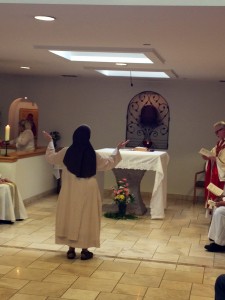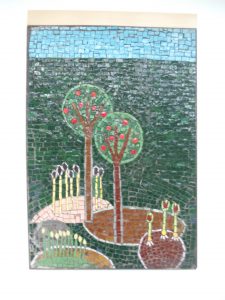 Although the blessing took place during the Lenten season, it equally speaks well to the season of Easter. The Blessing of seeds happened on the Solemnity of St. Benedict (March 21) at Portsmouth Abbey. The blessing was prayed by Prior Michael Brunner before Vespers.
Although the blessing took place during the Lenten season, it equally speaks well to the season of Easter. The Blessing of seeds happened on the Solemnity of St. Benedict (March 21) at Portsmouth Abbey. The blessing was prayed by Prior Michael Brunner before Vespers.
“Truly, truly, I say to you, unless a grain of wheat falls into the earth and dies, it remains alone; but if it dies, it bears much fruit.” (John 12:24).
Before Vespers on Sunday, March 21, Prior Michael blessed seeds and seedlings presented by Brother Benedict Maria and me, destined to be planted here at the Abbey and at Our Lady of Grace Monastery (North Guilford, CT), a monastery of contemplative Dominican nuns. These seeds and seedlings provide nourishing food for many. One may ask why the Church blesses seeds before planting. How does this minor rite educate us?
Beginning with the idea of tradition, we can adopt the thinking that is the “principle that ensures the continuity and identity of the same attitude through successive generations…. Tradition is memory, and memory enriches experiences” (Yves Congar, The Meaning of Tradition, San Francisco, Ignatius Press, 2004, 2). As professed monks and oblates, we know from experience that the monastic tradition is a distinct ecclesial identity rooted and sustained in the local traditions of a community’s relationship with a people, a piece of land, and particular circumstances. Further, monks, nuns and oblates will persuasively argue that the monastic way of life is a particular “memory of the Gospels.”
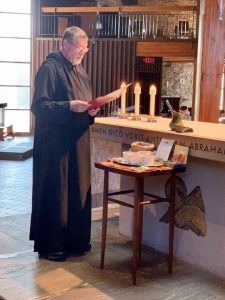 What is discerned by the blessing that Prior Michael imparted is the tradition — the memory — that seeds and seedlings contain: there is a relationship with the Lord of Life, that the serious work of gardening and agriculture is Eucharistic (“Unless a grain of wheat falls into the earth and dies…”), that with the Lord’s blessing we deepen our responsibility of being good stewards of the land and that we attend, and to our identity to co-create with God always pointing to the source of life. Seeds are symbolic of Divine generativity. One of the prayers we hear of Moses saying: “Tell the children of Israel … they are to offer the first-fruits to the priests, and they shall be blessed.” We also hear: “Let neither drought nor flood destroy them, but keep them unharmed until they reach their full growth and produce an abundant harvest for the service of body and soul.” In the second prayer the priest prays, he uses an image of God as the, “sower and tiller of the heavenly word, who cultivate the field of our hearts with heavenly tools, hear our prayers and pour out abundant blessings upon the fields in which these seeds are to be sown.”
What is discerned by the blessing that Prior Michael imparted is the tradition — the memory — that seeds and seedlings contain: there is a relationship with the Lord of Life, that the serious work of gardening and agriculture is Eucharistic (“Unless a grain of wheat falls into the earth and dies…”), that with the Lord’s blessing we deepen our responsibility of being good stewards of the land and that we attend, and to our identity to co-create with God always pointing to the source of life. Seeds are symbolic of Divine generativity. One of the prayers we hear of Moses saying: “Tell the children of Israel … they are to offer the first-fruits to the priests, and they shall be blessed.” We also hear: “Let neither drought nor flood destroy them, but keep them unharmed until they reach their full growth and produce an abundant harvest for the service of body and soul.” In the second prayer the priest prays, he uses an image of God as the, “sower and tiller of the heavenly word, who cultivate the field of our hearts with heavenly tools, hear our prayers and pour out abundant blessings upon the fields in which these seeds are to be sown.”
Portsmouth Abbey and the Dominican nuns (and their collaborators) recognize that some ancient customs are worth remembering because they help us discern the patterns of grace in reality. This minor rite shows us how we stand in relationship with divine revelation, good human work, leisure and the nourishing of the body. The rite transmits, that is, educates us, in the mercy of of God’s Providential care for all creation.
In another place in the already cited work of Cardinal Congar, he says tradition is, “the environment in which we receive the Christian faith … a living communication whose content is inseparable from the act by which one living person hands it on to another.” On Sunday, March 21, Prior Michael did just that: he took what he received in faith and transmitted to others (Br. Benedict Maria, the assembled monastic community, and me) the gift of life and memory by imparting a blessing upon the seeds and seedlings that will feed human beings and honey bees alike. Far from being superfluous and incidental the blessing is an act of encouragement and joy to attend to God’s creation that’s right in front us with an attitude of hope for the days to come.
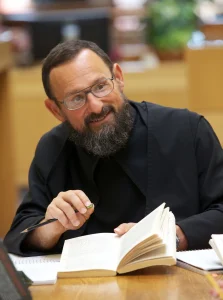 Yesterday, January 15, 2025, R. Dom Paschal Scotti was called by the Lord of Life to Himself. Dom Paschal was born in 1962 and died during Vespers. Father Matthew anointed Dom Paschal and prayed the Apostolic Pardon. The funeral rites will be Tuesday, January 21 at the Abbey.
Yesterday, January 15, 2025, R. Dom Paschal Scotti was called by the Lord of Life to Himself. Dom Paschal was born in 1962 and died during Vespers. Father Matthew anointed Dom Paschal and prayed the Apostolic Pardon. The funeral rites will be Tuesday, January 21 at the Abbey.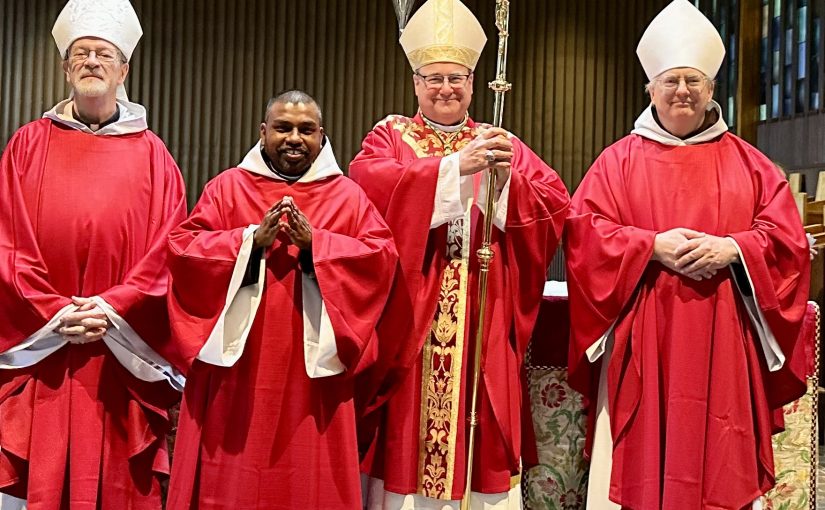
 Today my friend, Brother Benedict Maria, a Benedictine monk of Portsmouth Abbey, was ordained to the Order of Deacon by the Bishop of Providence, Richard G, Henning, STD.
Today my friend, Brother Benedict Maria, a Benedictine monk of Portsmouth Abbey, was ordained to the Order of Deacon by the Bishop of Providence, Richard G, Henning, STD.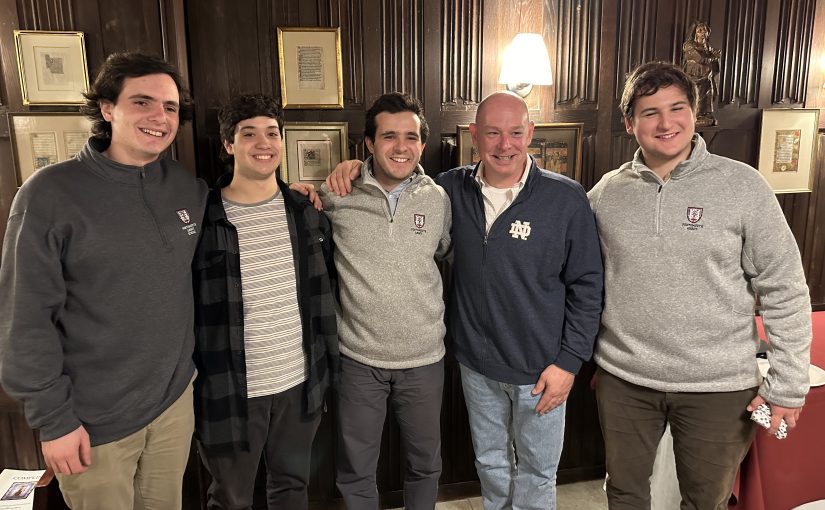
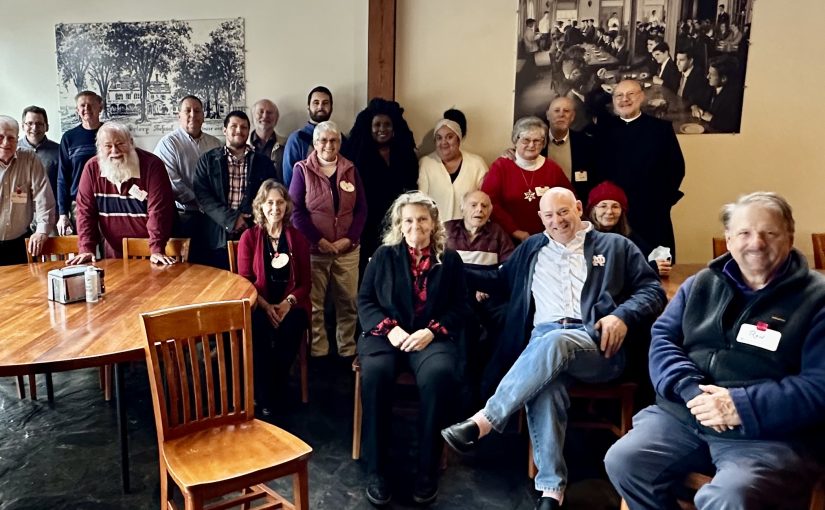
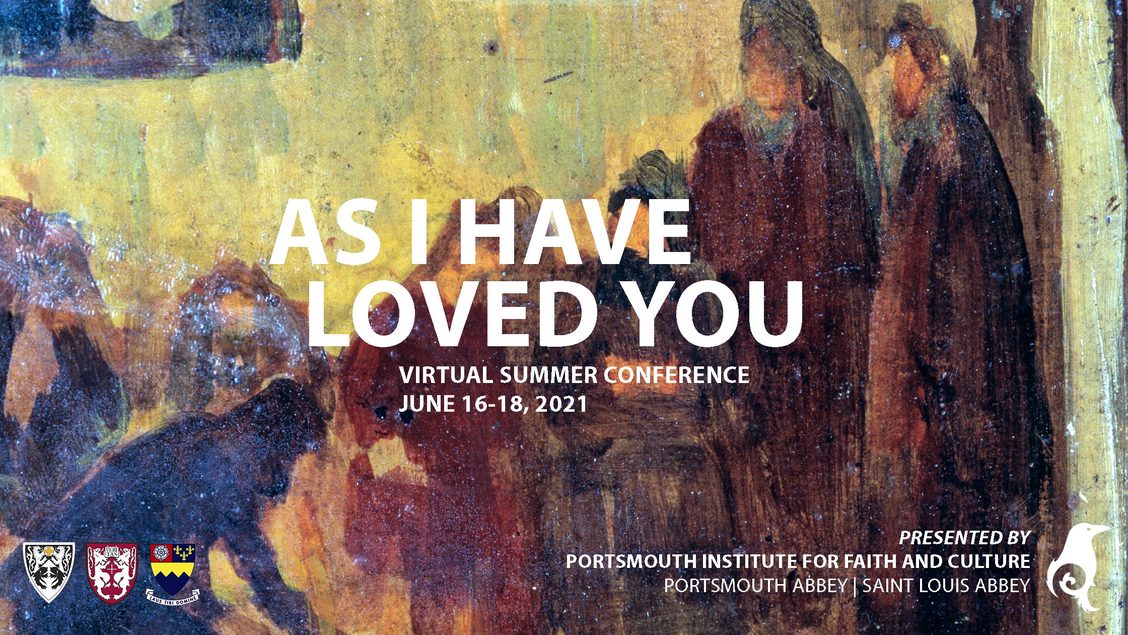
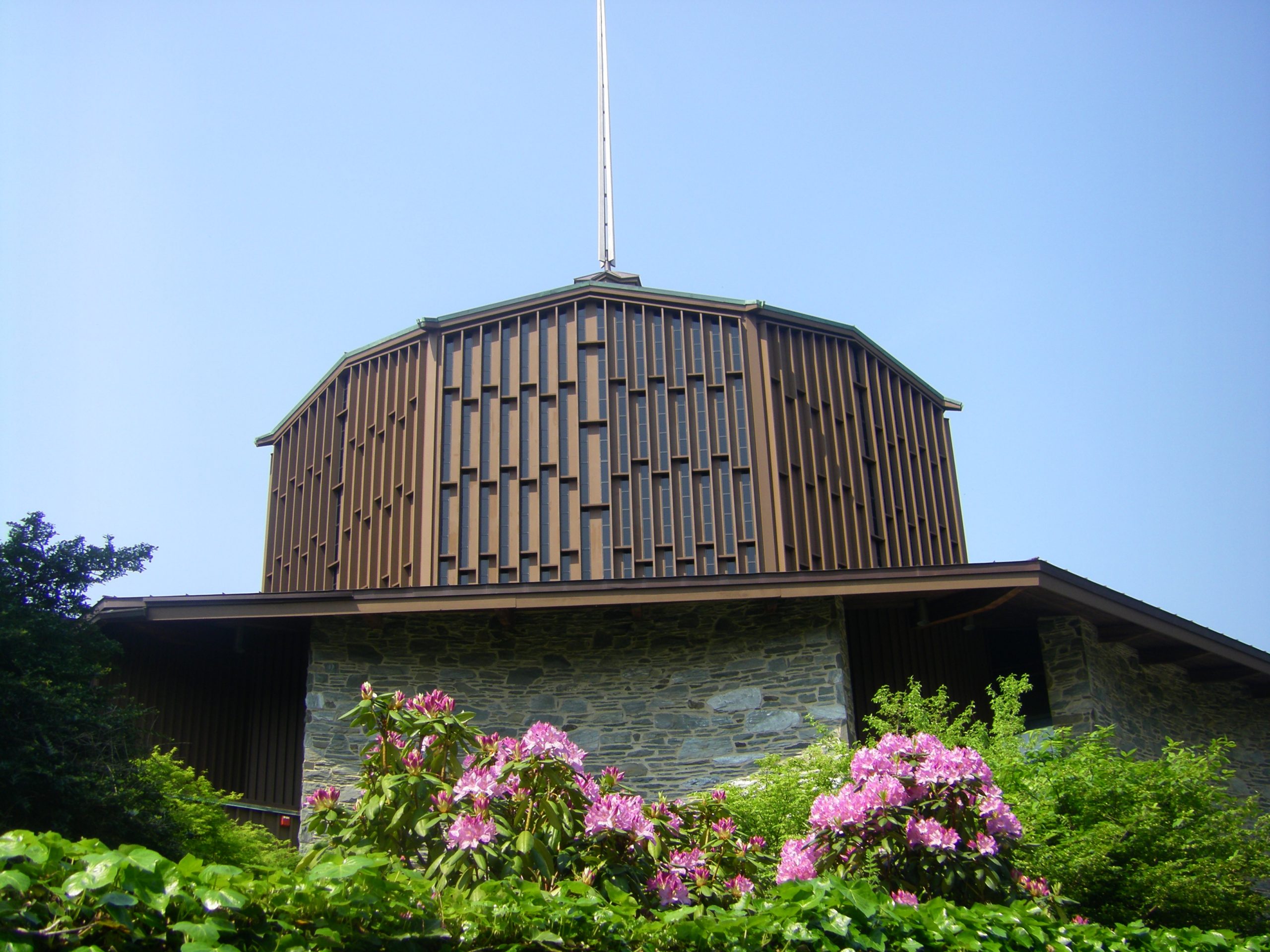
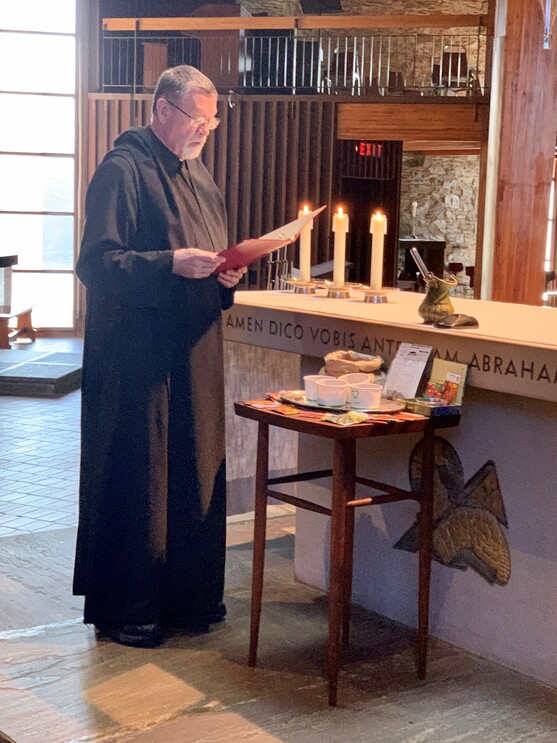
 Although the blessing took place during the Lenten season, it equally speaks well to the season of Easter. The Blessing of seeds happened on the Solemnity of St. Benedict (March 21) at Portsmouth Abbey. The blessing was prayed by Prior Michael Brunner before Vespers.
Although the blessing took place during the Lenten season, it equally speaks well to the season of Easter. The Blessing of seeds happened on the Solemnity of St. Benedict (March 21) at Portsmouth Abbey. The blessing was prayed by Prior Michael Brunner before Vespers. What is discerned by the blessing that Prior Michael imparted is the tradition — the memory — that seeds and seedlings contain: there is a relationship with the Lord of Life, that the serious work of gardening and agriculture is Eucharistic (“Unless a grain of wheat falls into the earth and dies…”), that with the Lord’s blessing we deepen our responsibility of being good stewards of the land and that we attend, and to our identity to co-create with God always pointing to the source of life. Seeds are symbolic of Divine generativity. One of the prayers we hear of Moses saying: “Tell the children of Israel … they are to offer the first-fruits to the priests, and they shall be blessed.” We also hear: “Let neither drought nor flood destroy them, but keep them unharmed until they reach their full growth and produce an abundant harvest for the service of body and soul.” In the second prayer the priest prays, he uses an image of God as the, “sower and tiller of the heavenly word, who cultivate the field of our hearts with heavenly tools, hear our prayers and pour out abundant blessings upon the fields in which these seeds are to be sown.”
What is discerned by the blessing that Prior Michael imparted is the tradition — the memory — that seeds and seedlings contain: there is a relationship with the Lord of Life, that the serious work of gardening and agriculture is Eucharistic (“Unless a grain of wheat falls into the earth and dies…”), that with the Lord’s blessing we deepen our responsibility of being good stewards of the land and that we attend, and to our identity to co-create with God always pointing to the source of life. Seeds are symbolic of Divine generativity. One of the prayers we hear of Moses saying: “Tell the children of Israel … they are to offer the first-fruits to the priests, and they shall be blessed.” We also hear: “Let neither drought nor flood destroy them, but keep them unharmed until they reach their full growth and produce an abundant harvest for the service of body and soul.” In the second prayer the priest prays, he uses an image of God as the, “sower and tiller of the heavenly word, who cultivate the field of our hearts with heavenly tools, hear our prayers and pour out abundant blessings upon the fields in which these seeds are to be sown.”
